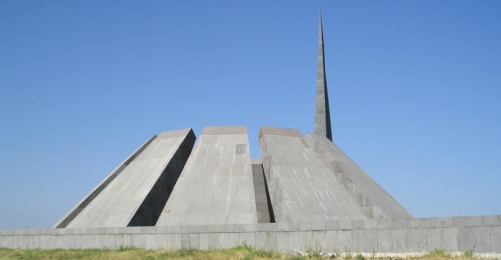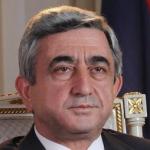24 April is considered the anniversary of the forced exile of Armenians from the Ottoman Empire.
On 24 April 1915, Armenian intellectuals were taken from their homes in Istanbul and sent to central Anatolia, where they were killed. This is considered by many the beginning of the “Great Atrocities”, as the Armenians call it (Medz Yeğern).
The official discourse in Turkey holds on to the claim that Armenians and Turks died when fighting each other, and that Armenian gangs are also responsible for the deaths of hundreds of thousands of Muslims at the time.
They thus deny the claims of the Armenian diaspora that there were concerted efforts to cleanse the Ottoman Empire of all Armenians. It is unthinkable for many in Turkey to speak of a “genocide” and this year’s speech by Barack Obama was awaited nervously.
In a written statement on “Armenian Remembrance Day”, the US President chose to use the term “Great Atrocities” (Medz Yeğern), avoiding the therm “genocide.”
However, this concession to Turkish sensitivities was not considered satisfactory by Prime Minister Recep Tayyip Erdoğan, opposition leader Deniz Baykal or President Abdullah Gül, who all expressed disappointment at his terminology.
The statement reads as follows:
Ninety four years ago, one of the great atrocities of the 20th century began. Each year, we pause to remember the 1.5 million Armenians who were subsequently massacred or marched to their death in the final days of the Ottoman Empire. The Meds Yeghern must live on in our memories, just as it lives on in the hearts of the Armenian people.
History, unresolved, can be a heavy weight. Just as the terrible events of 1915 remind us of the dark prospect of man’s inhumanity to man, reckoning with the past holds out the powerful promise of reconciliation. I have consistently stated my own view of what occurred in 1915, and my view of that history has not changed. My interest remains the achievement of a full, frank and just acknowledgment of the facts.
The best way to advance that goal right now is for the Armenian and Turkish people to address the facts of the past as a part of their efforts to move forward. I strongly support efforts by the Turkish and Armenian people to work through this painful history in a way that is honest, open, and constructive. To that end, there has been courageous and important dialogue among Armenians and Turks, and within Turkey itself. I also strongly support the efforts by Turkey and Armenia to normalize their bilateral relations. Under Swiss auspices, the two governments have agreed on a framework and roadmap for normalization. I commend this progress, and urge them to fulfill its promise.
Together, Armenia and Turkey can forge a relationship that is peaceful, productive and prosperous. And together, the Armenian and Turkish people will be stronger as they acknowledge their common history and recognize their common humanity.
Nothing can bring back those who were lost in the Meds Yeghern. But the contributions that Armenians have made over the last ninety-four years stand as a testament to the talent, dynamism and resilience of the Armenian people, and as the ultimate rebuke to those who tried to destroy them. The United States of America is a far richer country because of the many Americans of Armenian descent who have contributed to our society, many of whom immigrated to this country in the aftermath of 1915. Today, I stand with them and with Armenians everywhere with a sense of friendship, solidarity, and deep respect.
* This article made use of www.whitehouse.gov







